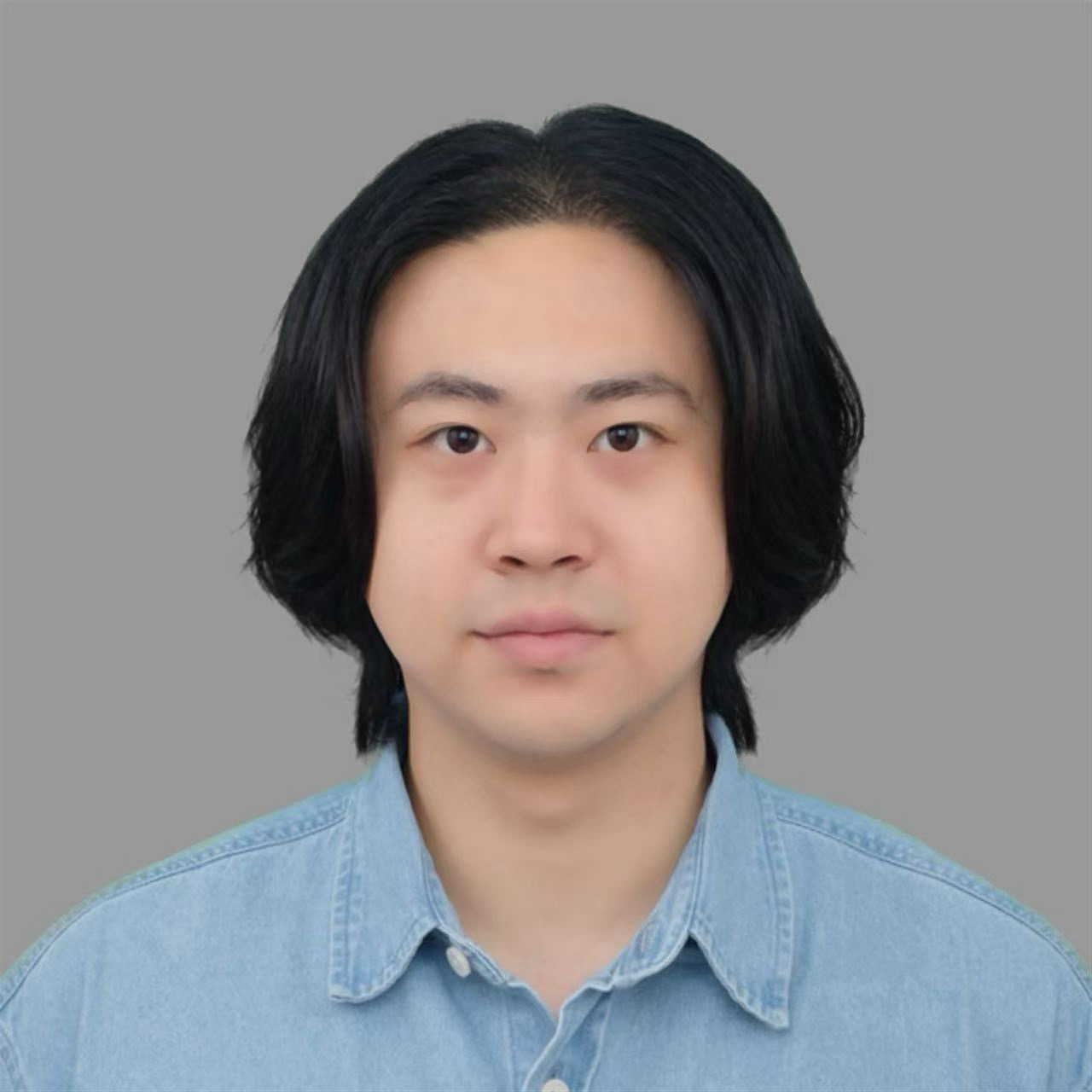The W-SPRING/W-SPRING-AI PhD Forum Provides a Platform for Students, Researchers, and Practitioners to Share Knowledge and Build Networks
Wed, Oct 15, 2025-
Tags
The second W-SPRING/W-SPRING-AI PhD Forum was held at the Waseda University International Conference Center on September 19, 2025. The SPRING program, or the Support for Pioneering Research Initiated by the Next Generation, is a Ministry of Education, Culture, Sports, Science and Technology (MEXT) initiative designed to provide financial and career support for graduate students. During the forum, students were able to interact with both Waseda professors and researchers, as well as industry leaders and company representatives from outside Waseda. The forum provided an opportunity for students from different schools and majors at Waseda to showcase their ongoing research and get to know about different research topics and methods through poster and oral presentations. It also encouraged students with diverse academic and cultural backgrounds to share views about technological developments, come up with practical ideas for social innovation, and engage in interdisciplinary conversations through group work.
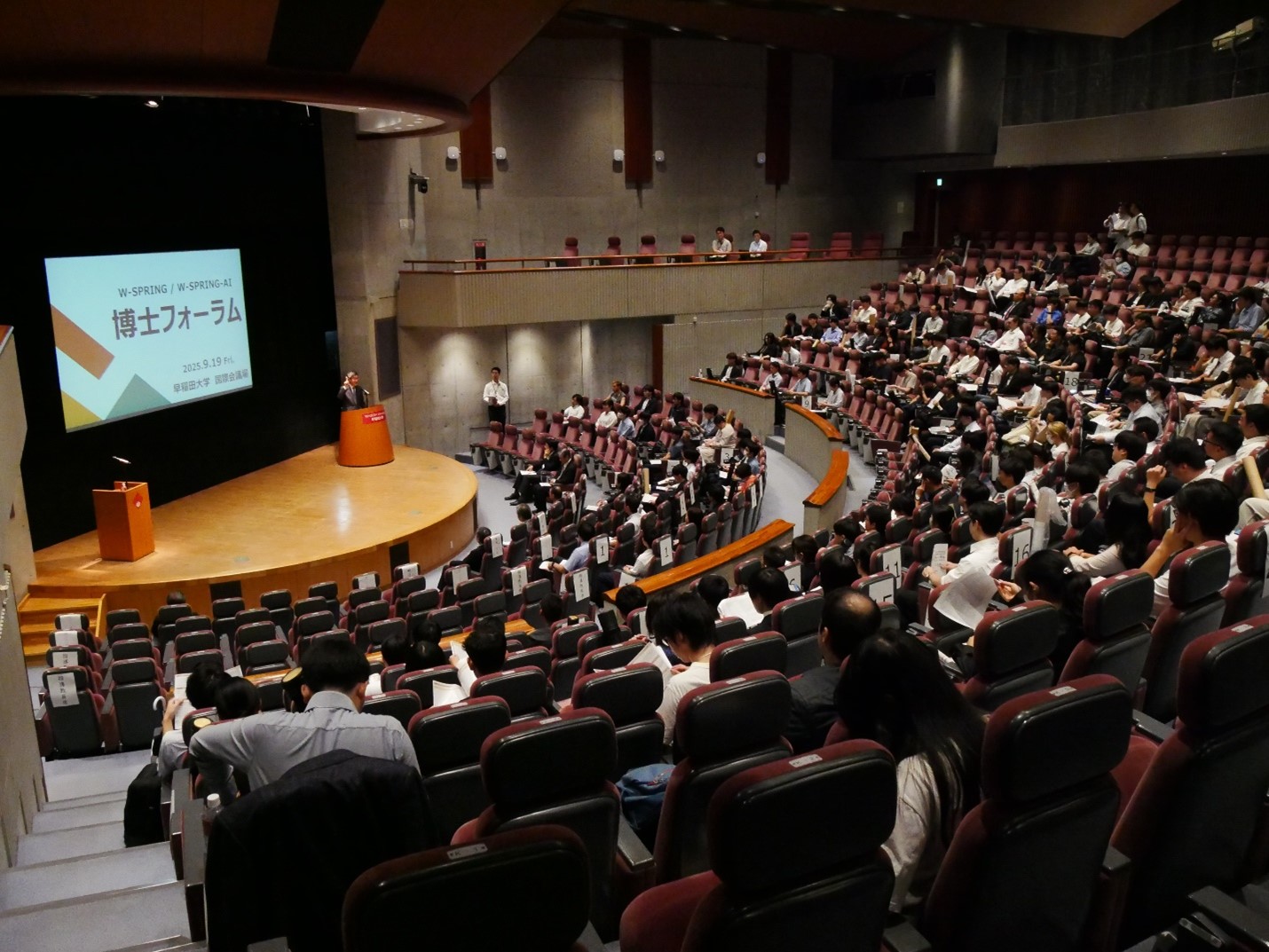
In the morning, the forum began with three speeches: the opening remarks by Takayuki Homma, the Director of the W-SPRING Program and Executive Vice President of the University, a greeting from Masaaki Nishijo, the Director-General of the Science and Technology Policy Bureau, MEXT and the introduction of the purpose and program of the forum by Hironori Washizaki, the Director of the W-SPRING-AI Program. Professor Washizaki encouraged students to connect with at least one peer for potential research collaboration by the end of the forum.
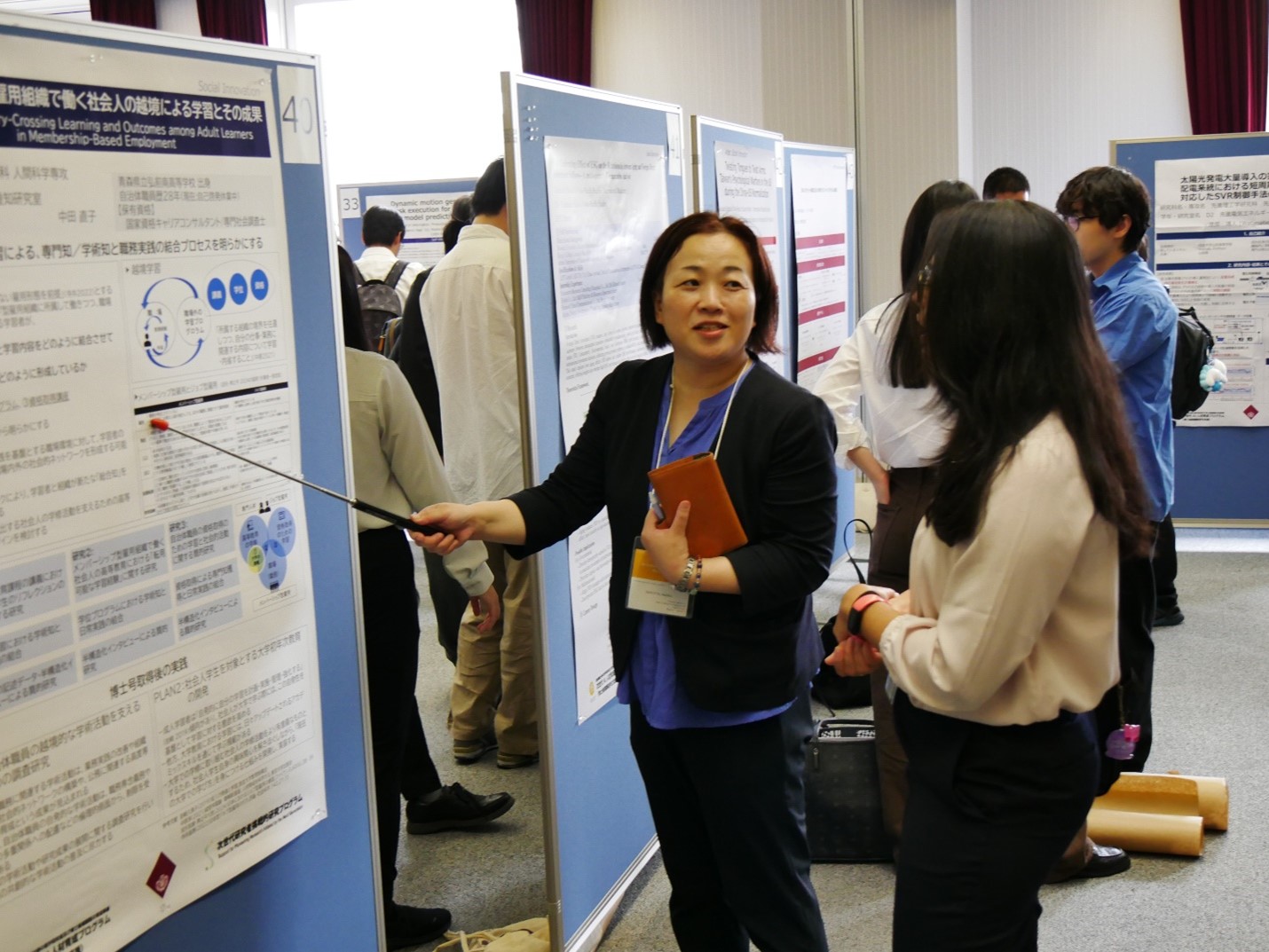
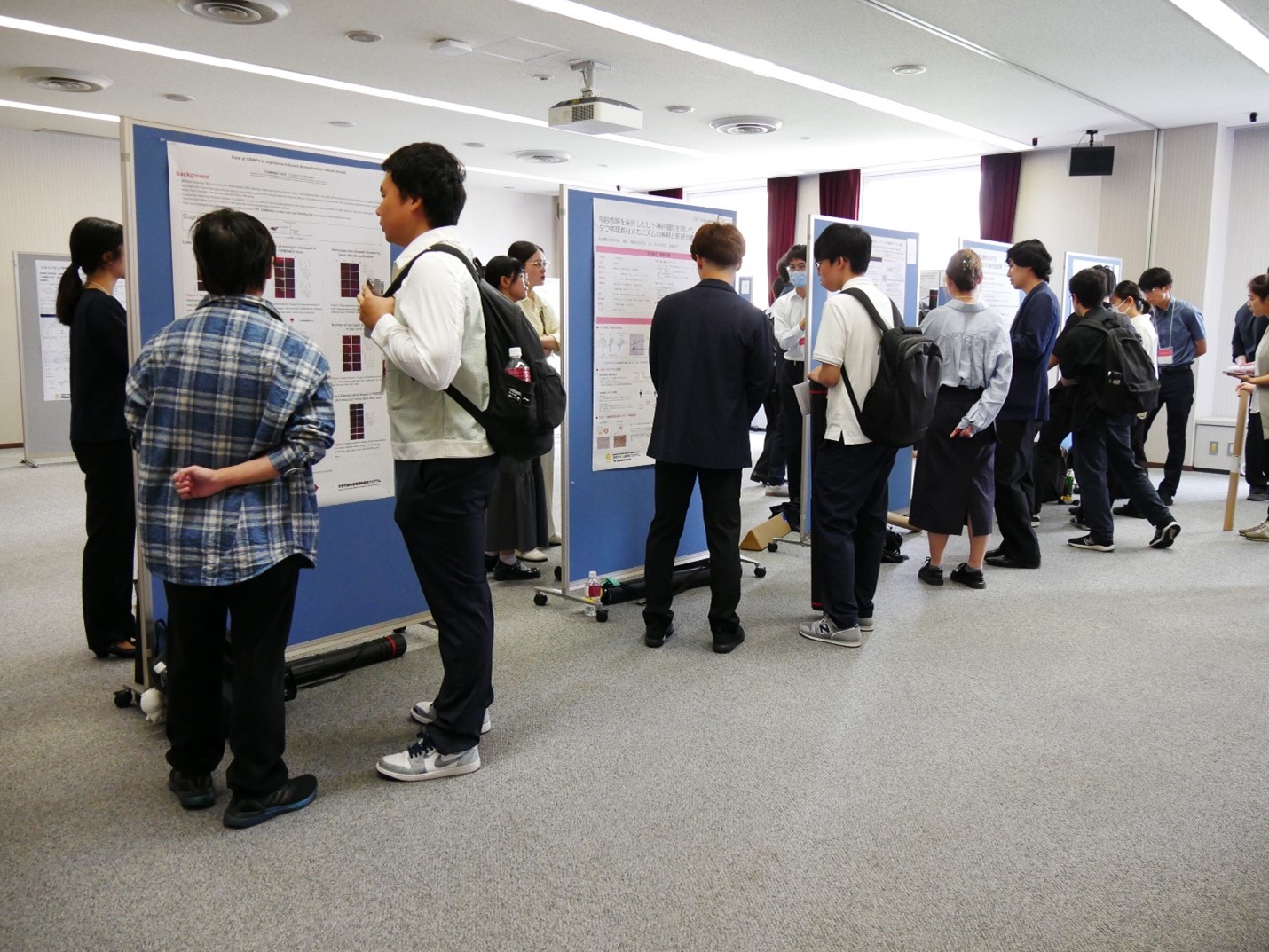
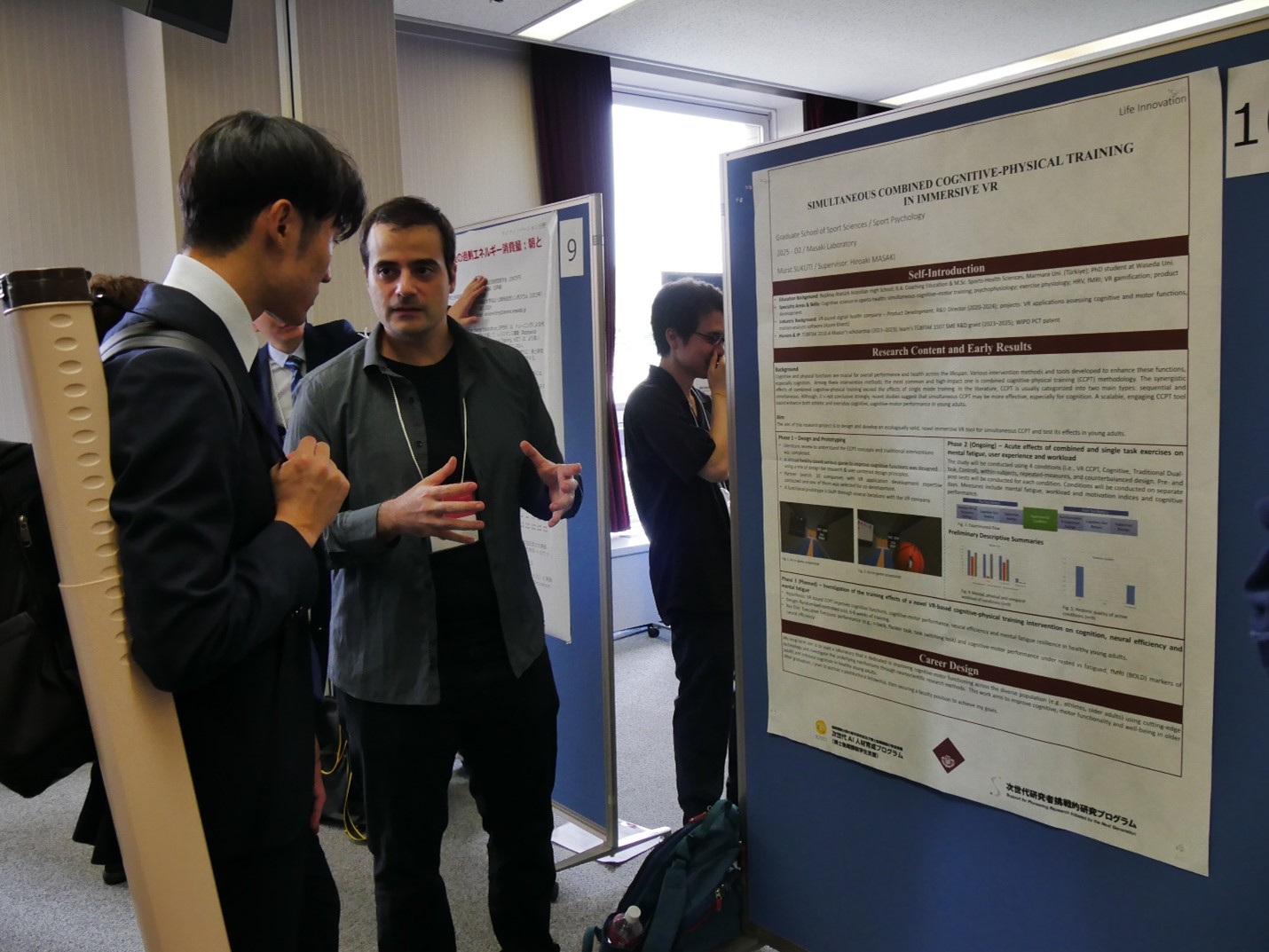
The three speeches were followed by four research poster sessions in both English and Japanese, where attendees freely walked around, and current students introduced their ongoing research with the help of their posters. Different from the posters often seen in academic conferences, posters here not only summarized the students’ research in accessible language but also included the students’ self-introductions and career aspirations. This unique format fostered engaging conversations—not only among students working on similar topics, but also across diverse fields—encouraging interdisciplinary research. Personally, my attention was caught by a research project integrating linguistics and cognitive science, investigating reading patterns using methods such as surveys, eye-trackers, and fMRI. I had the chance to speak with the doctoral student from Europe who was conducting the research with her supervisor.
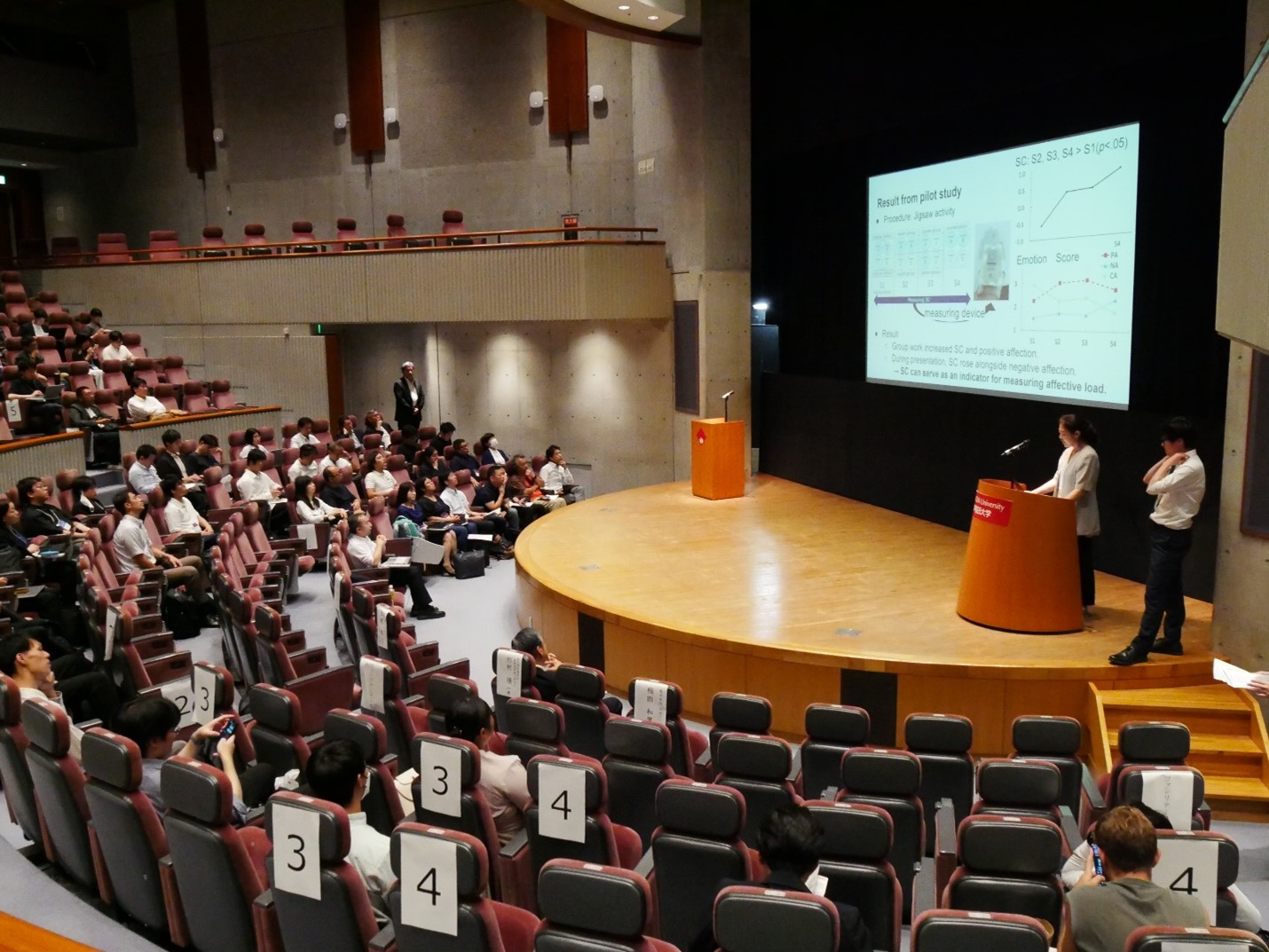
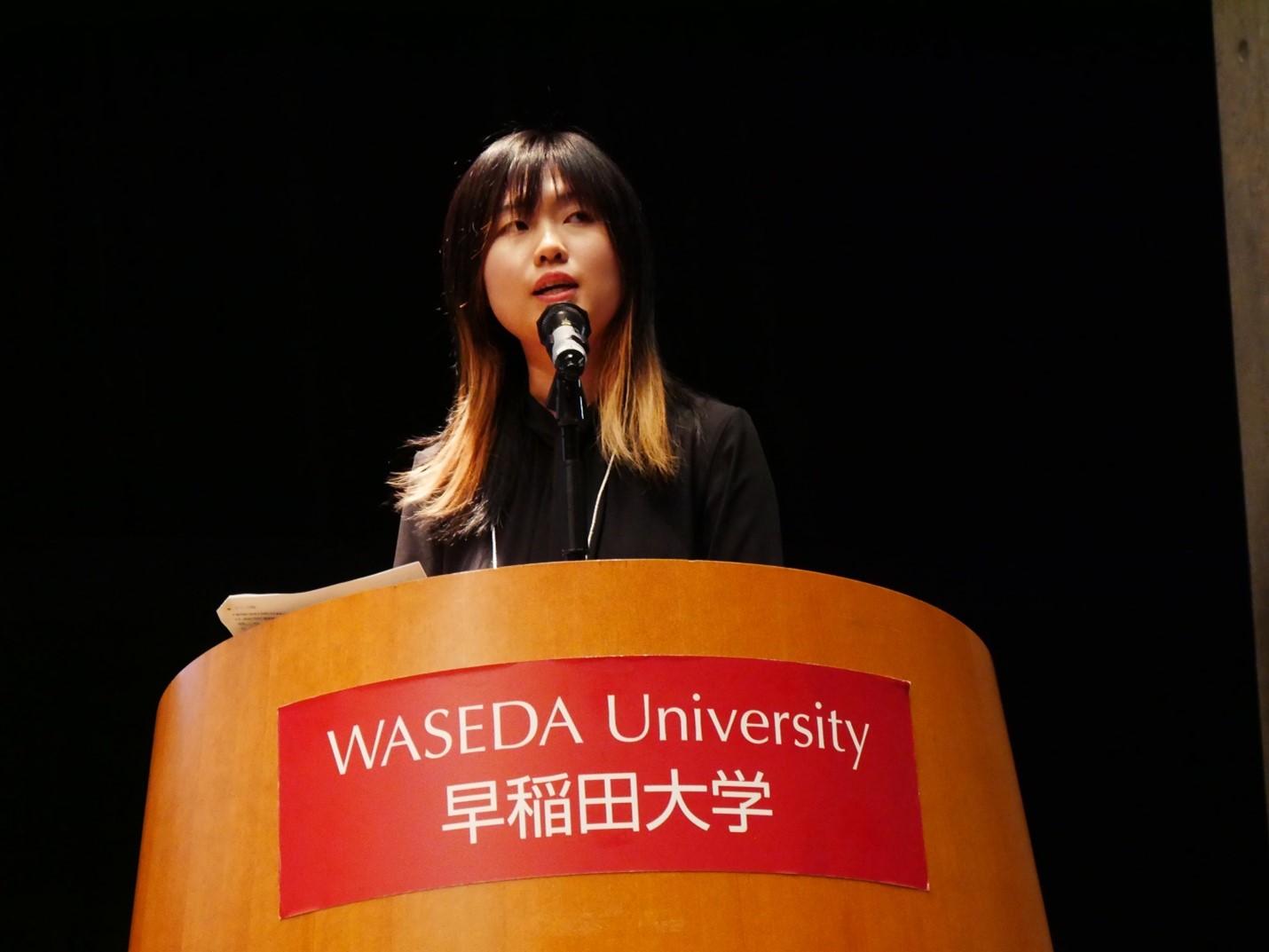
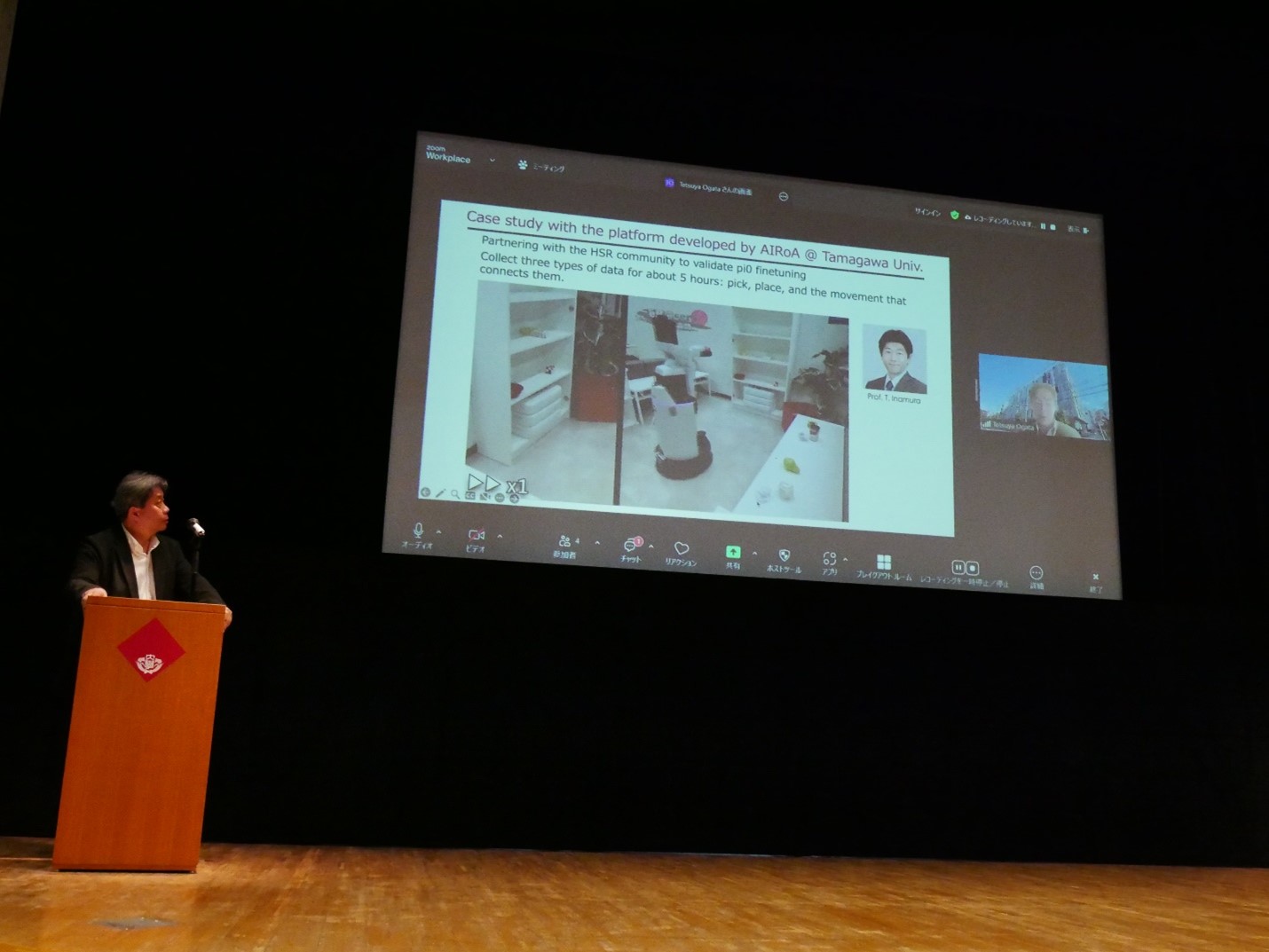
In the afternoon, two groups of students from the W-SPRING program made presentations to introduce their ongoing research projects. One of them focused on the neural mechanisms underlying listening difficulties and another focused on visualizing the learning effects of “Failure.” The two presentations were followed by a keynote speech by Tetsuya Ogata, the Deputy Director of the W-SPRING-AI Program, titled “Embodied AI: Empowering Robots with Foundation Models.” In the keynote speech, he shared real-world applications of AI, using his own research projects as examples, including AIREC, an AI driven humanoid robot poised to help support Japan’s aging population by acting as a caregiver for the elderly. Then, the participants were divided into 27 groups to have roundtable discussions in English or Japanese.
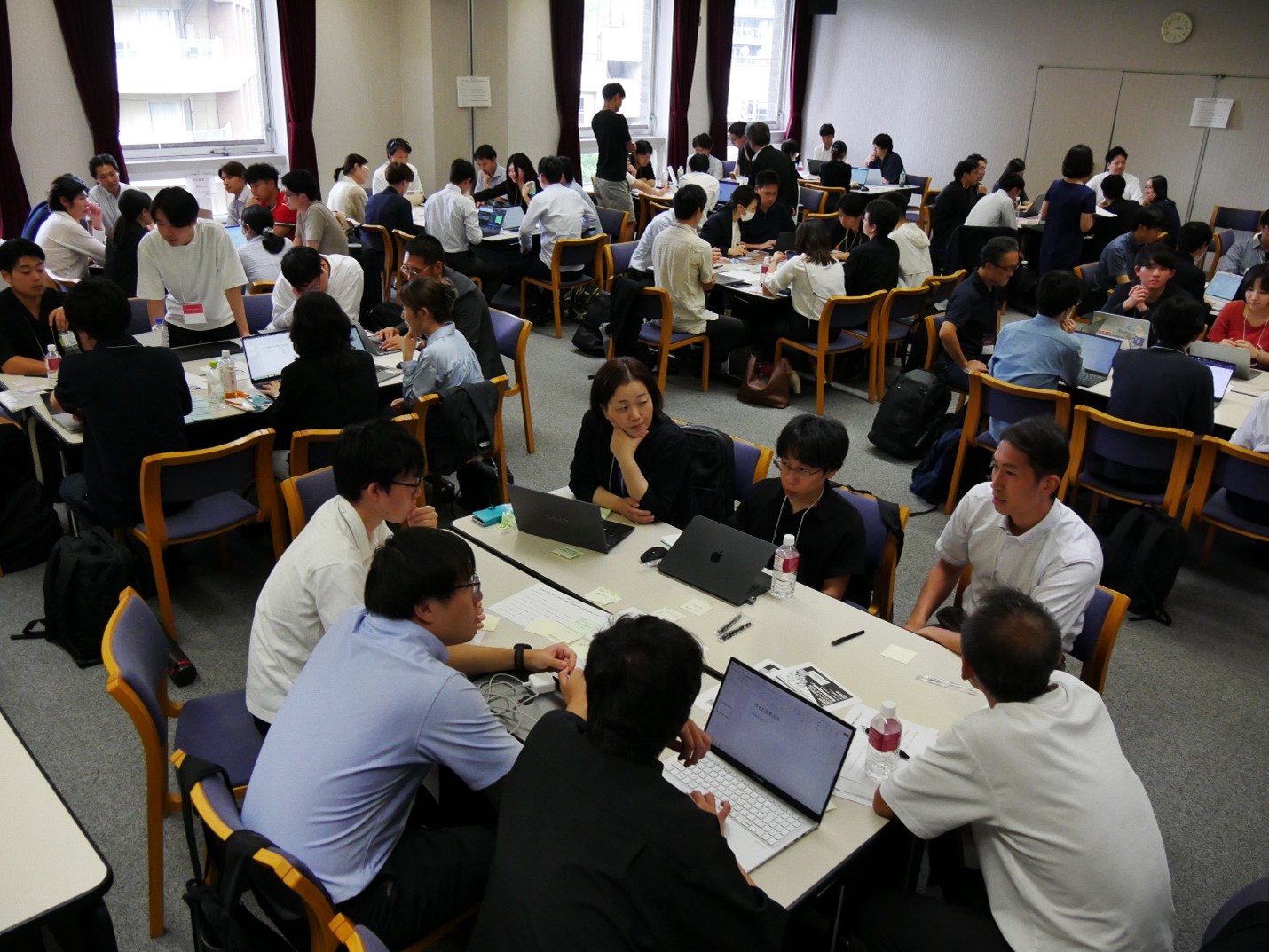
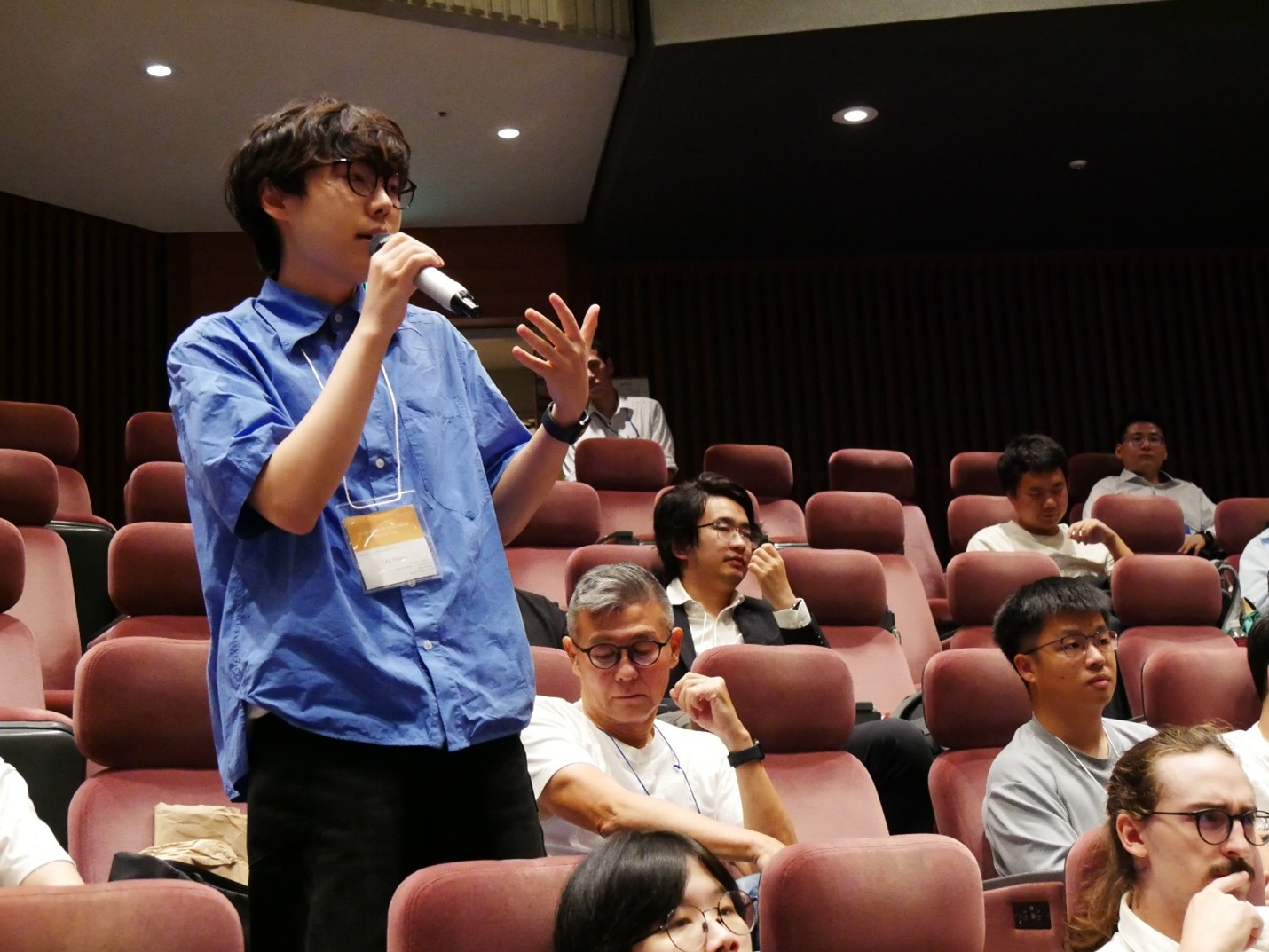
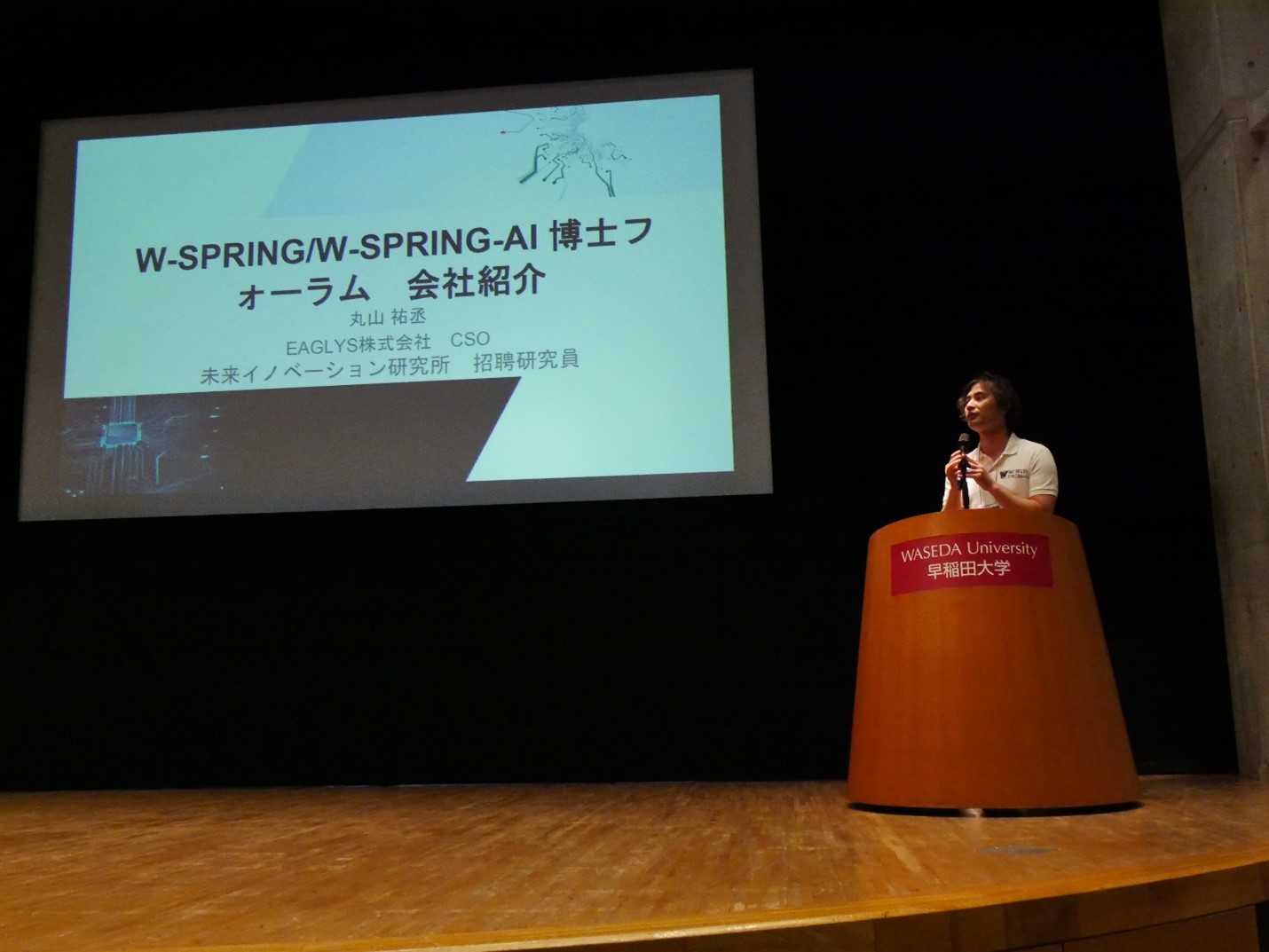
Faculty members from Waseda, as well as researchers and practitioners from other research institutes and companies served as facilitators. Students were prompted to share their diverse perspectives stemming from their different academic backgrounds regarding the broad question “No matter how much AI develops, what challenges remain that only humans can solve?” One group, which I had the chance to listen in on, concluded that while AI can help analyze situations and provide suggestions, human input is vital to make decisions that balance diverse interests in society. Before the closing ceremony and networking session, students from each group made short presentations to share the results of their discussions. The facilitators provided general comments on their presentations, and a number of company representatives briefly introduced their companies.
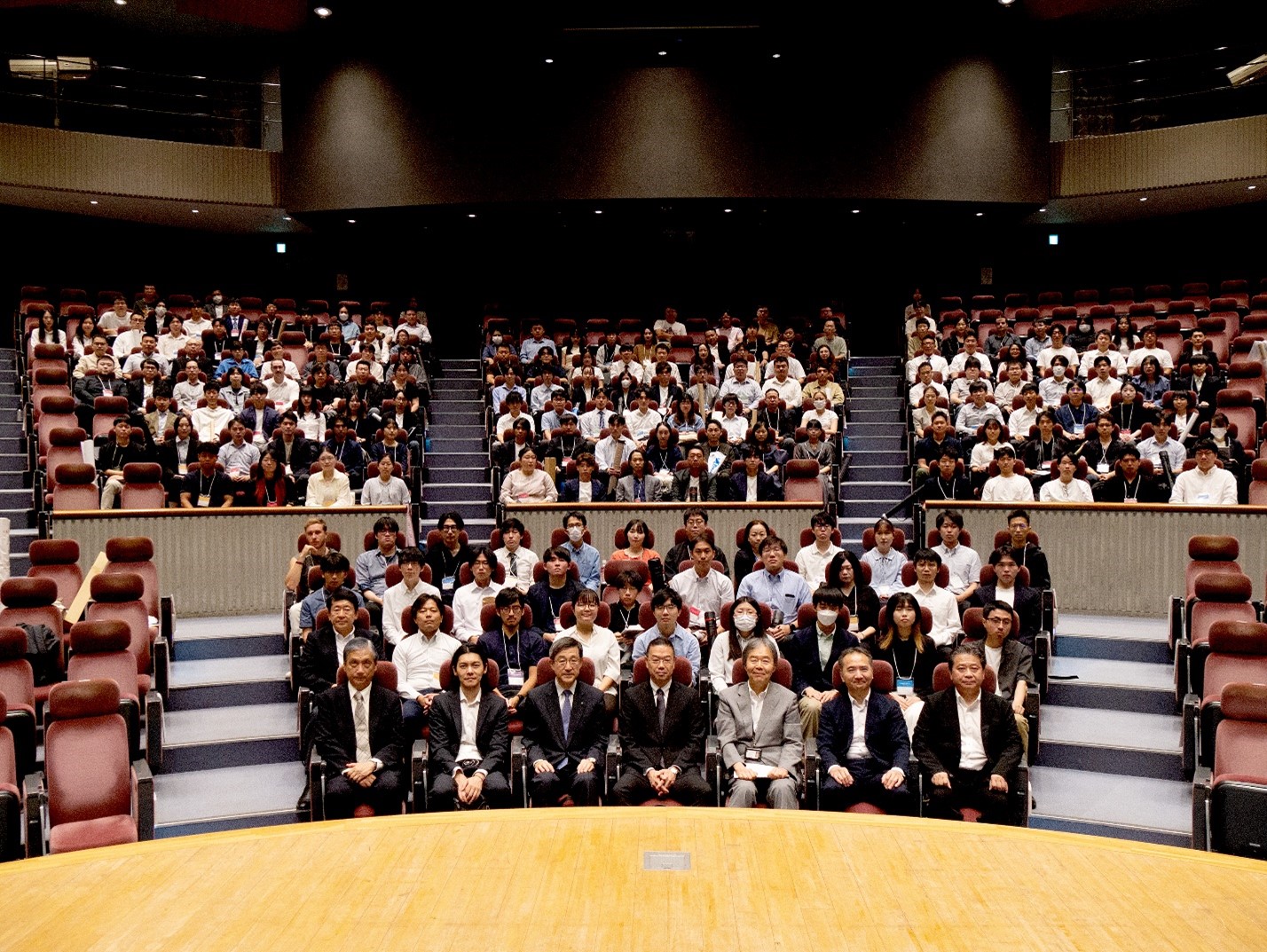
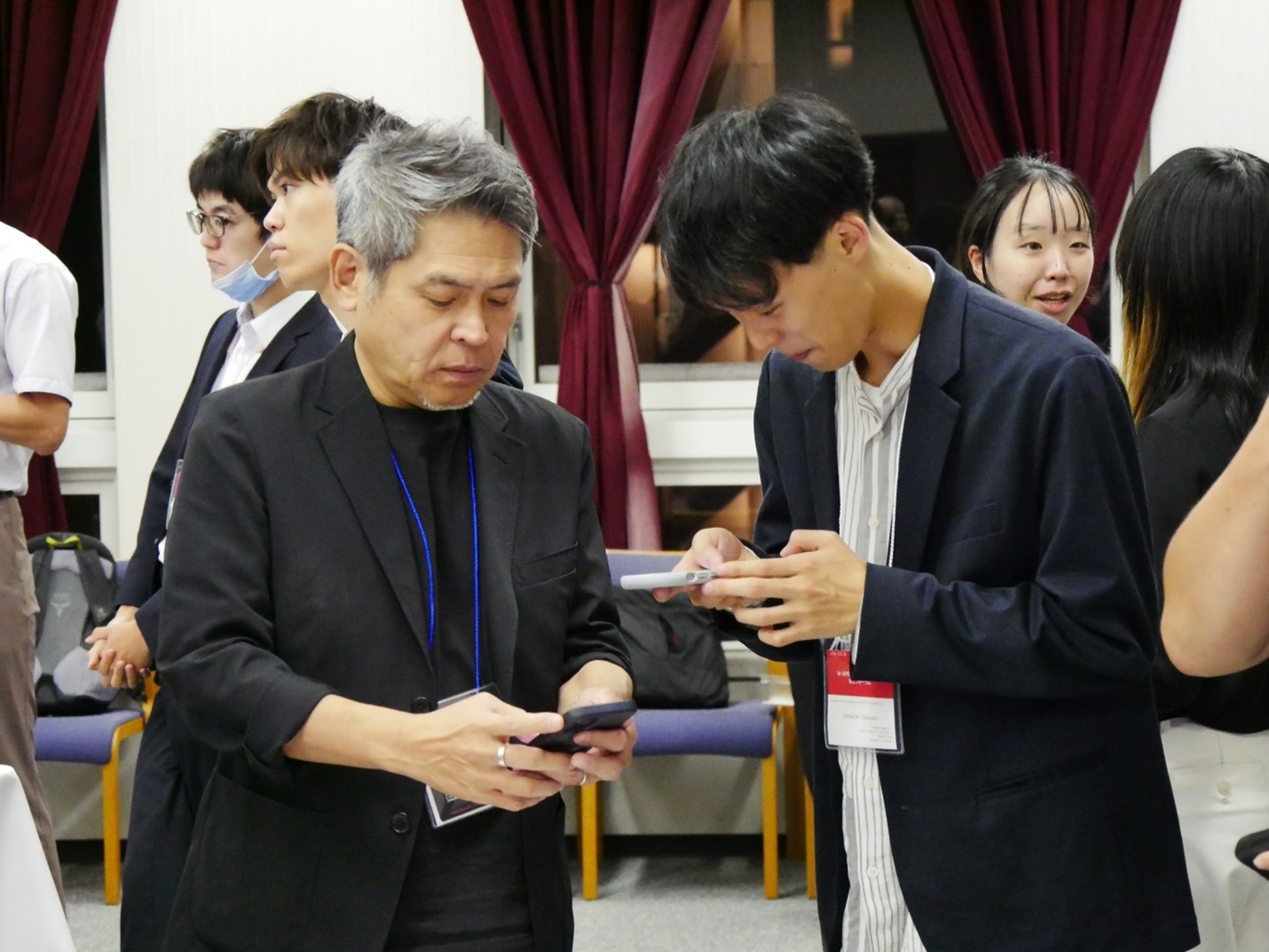
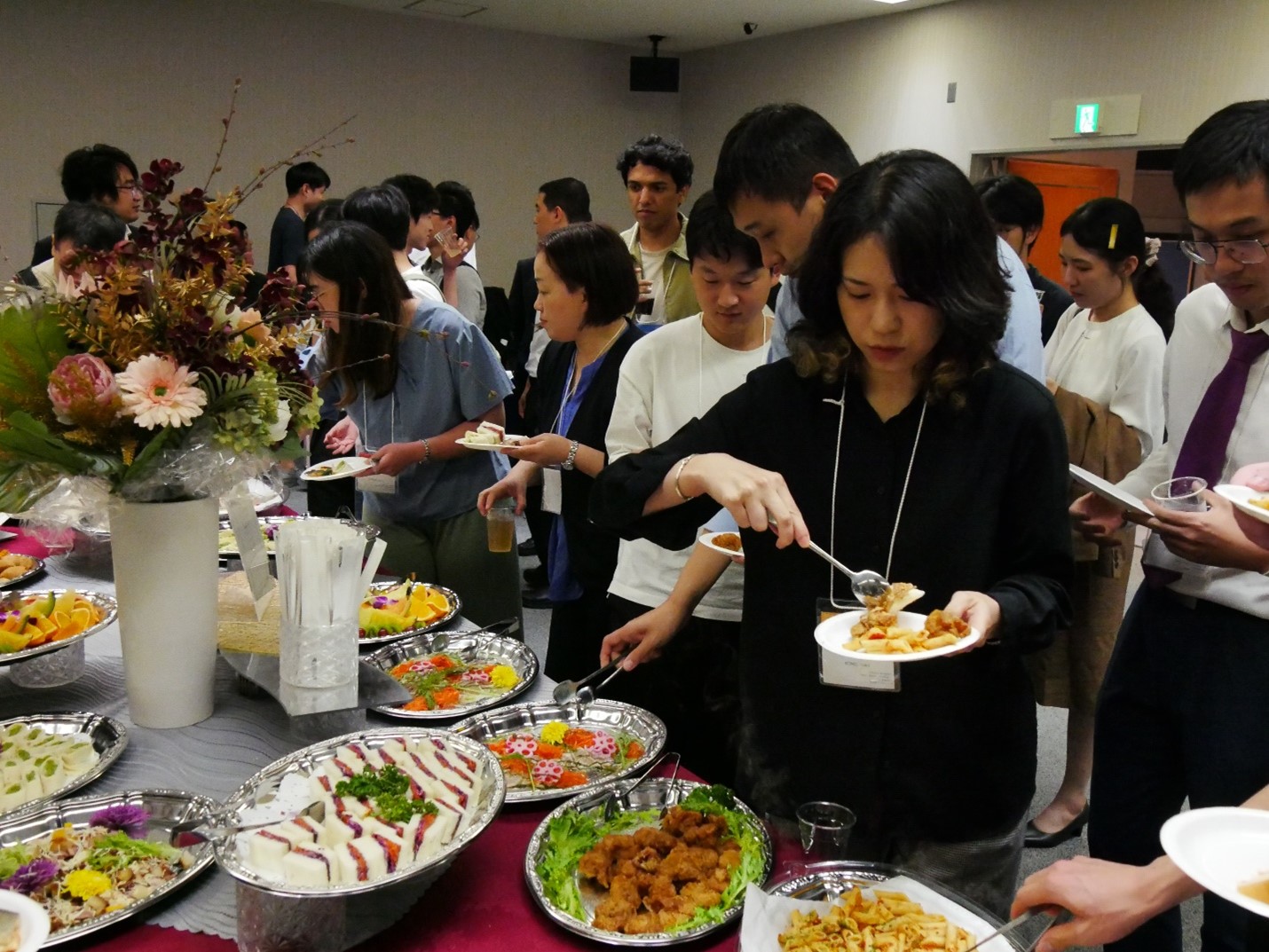
The speeches, presentations, posters, and workshop sessions in the forum initiated interesting dialogues about technology, AI, and robotics and encouraged students to think about how their own research can be applied to address social challenges and how they would like to develop their own careers in the future. The remarks from the professors and practitioners spanned across various fields and demonstrated the values of interdisciplinary research and academia-industry cooperation to contribute to society. The forum demonstrated that the W-SPRING and W-SPRING-AI Programs not only offers financial support—it provides a meaningful platform for aspiring researchers, both local and international, to discuss collaboration on interdisciplinary research and exchange diverse viewpoints.
This article was written by the following Student Contributor:
Peter Chai (Kai Shibata)
